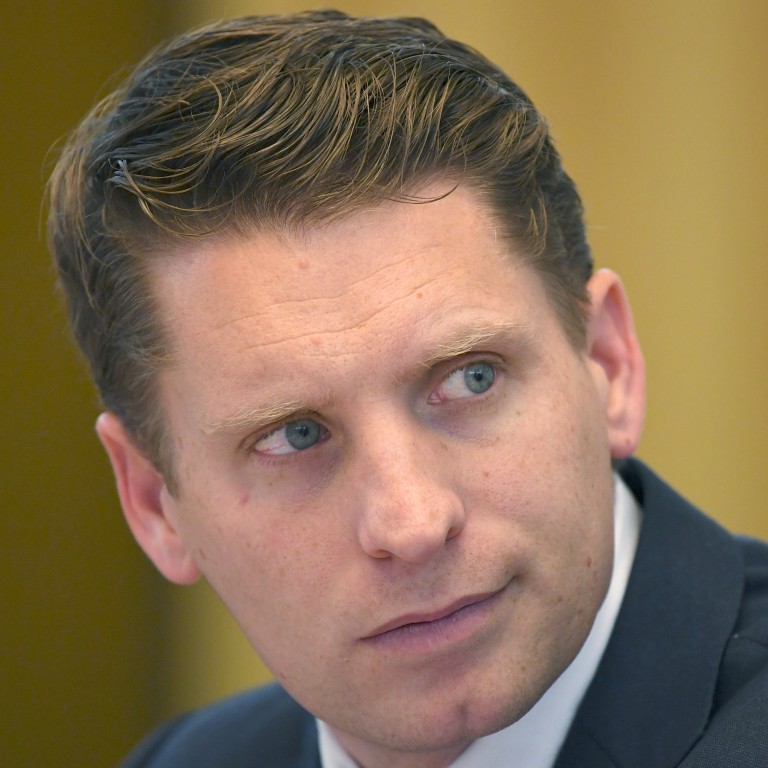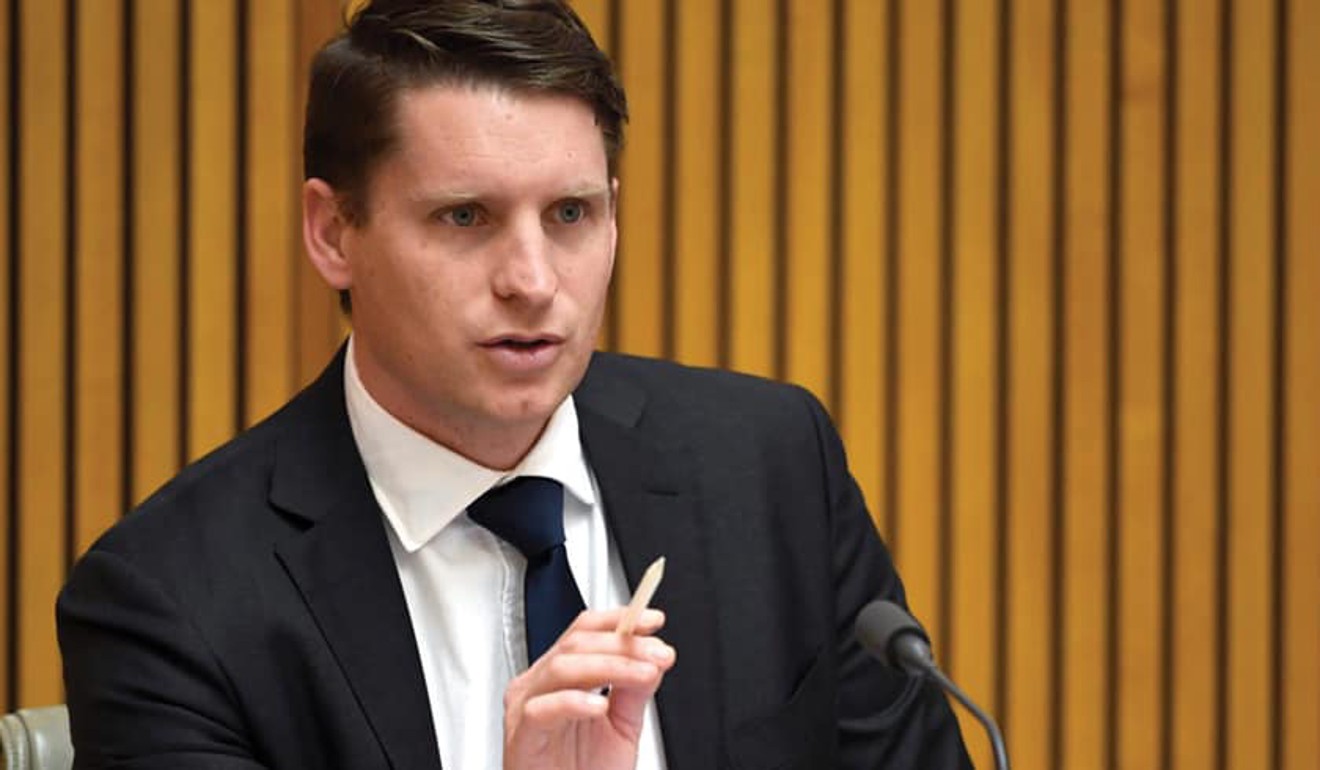
Australian MP who compared China’s rise to Nazi Germany’s ‘not welcome’ in Beijing
- MP Andrew Hastie and Senator James Paterson will no longer go on a study tour of the country after hearing they are “not welcome at this time”
- Snub comes amid fears about Chinese meddling in Australia
Two members of the Australian parliament known for their criticism of Beijing will no longer make a scheduled trip to the Chinese capital after the government said they were unwelcome, according to the head of a Sydney-based policy institute.
Alistair Nicholas, the CEO of China Matters, said an official of the Chinese embassy in Canberra told him House of Representatives member Andrew Hastie and Senator James Paterson – two of three legislators set to go on a study tour to Beijing – were “not welcome at this time”.
The politicians had not begun formal visa applications and there was no suggestion of concerns about the third legislator, House of Representatives member Matt Keogh of the opposition Labor Party.
In a statement on Friday, China Matters said it had postponed its third study tour, scheduled for December 9 to 11, after learning of Beijing’s decision.

“We regret the decision of the government of the People’s Republic of China, conveyed to China Matters via the PRC Embassy in Canberra, that at this time Mr Hastie and Senator Paterson are not welcome on a China Matters study tour to Beijing,” the non-profit organisation said in a statement.
Beijing has fought back against public criticism by Australian lawmakers and leaders, on Friday describing as “nonsense” reports of infiltration at Australian universities, after Canberra issued guidelines for universities to guard against foreign interference.
Australia issues guidelines for universities on foreign meddling amid China fears
Two previous study tours had taken place – one last year and the second in September this year.
In a joint statement, Hastie and Paterson, both members of the conservative Liberal Party of Prime Minister Scott Morrison, said they had been looking forward to learning about Chinese culture and history and were disappointed to miss out on an “opportunity for dialogue”.
“Despite this, we will always speak out in defence of Australia’s values, sovereignty and national interest. We look forward to a time when the Chinese government realises that it has nothing to fear from honest discussion and the free exchange of ideas.”
Hastie, a backbencher who chairs parliament’s influential security and intelligence committee, has been among Beijing’s fiercest critics in Australian politics. In August, the former special forces captain compared Australia’s approach to China to the failure of Western countries to contain Nazi Germany before World War II.
The remarks drew a sharp rebuke from the Chinese embassy in Canberra – which accused the MP of harbouring a “cold war mentality and ideological bias” – and criticism from the centre-left opposition Labor Party.
China Matters in its statement highlighted how the names of politicians who agreed to join the study tour were made public by the media and said: “Disappointingly, the media attention that ensued created an environment which was no longer conducive to our goal of facilitating low-key discussions and exchanging differing points of view behind closed doors.”
John Blaxland, a professor at the Strategic and Defence Studies Centre at the Australian National University, said the visa denials set a “fresh precedent for PRC hypersensitivity” and reflected a “growing chill in relations”.
Huawei warns Australia it is being ‘left behind’ on 5G as tech giant challenges ban
“China Matters has been a significant advocate for level-headed and constructive engagement by Australians with China,” Blaxland said.
“It’s advocacy has been construed in some quarters as being quite Sinophile. Hastie’s and Paterson’s involvement could have provided PRC authorities with an opportunity to be endearing and, perhaps, may have led to a softening of their attitude towards China. Their willingness to be included suggests they were approaching the matter in an open-minded manner.”
The Chinese embassy in Canberra has been contacted for comment.

